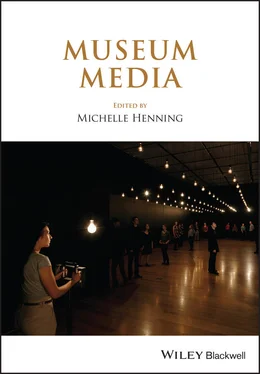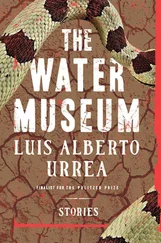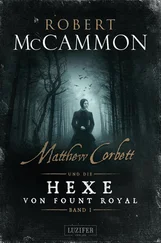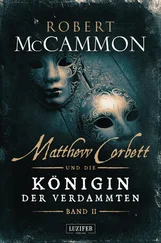One thing that is clear from these volumes, however, is that there is no single trajectory that museums have taken in the past. Neither is there a single track along which they are all heading, nor one that those of us who have contributed would agree that they should necessarily all take. The diversity of museums themselves, as well as of those who work in, on, and with them, and of the perspectives that these volumes show can be brought to bear upon them – as well as their very various histories, collections, contexts, personnel, publics, and ambitions – has inspired the diversified museum studies represented in these International Handbooks. Our hope is that this more diversified museum studies can contribute not only to new ways of understanding museums but also to new, and more varied, forms of practice within them – and to exciting, challenging futures, whatever these might be.
Producing these International Handbooks of Museum Studies has probably been a bigger and more demanding project than any of us had anticipated at the outset. Assembling together so many authors across four different volumes, and accommodating so many different timetables, work dynamics, styles, and sensitivities has been a major task over more years than we like to recall for both us as general editors, and even more especially for the editors of our four volumes: Andrea Witcomb, Kylie Message, Conal McCarthy, Michelle Henning, Annie E. Coombes, and Ruth B. Phillips. As general editors, our first thanks must be to the volume editors, who have done a remarkable task of identifying and eliciting so many insightful and illuminating contributions from such a wide field, and of working with authors – not all of whom were experienced in academic writing and many of whom were already grappling with hectic schedules – to coax the best possible chapters from them. We thank our volume editors too for working with us and what may sometimes have seemed overly interventionist assistance on our part in our push to make the volumes work together, as well as individually, and for all contributions, as well as the International Handbooks as a whole, to be a substantial contribution to the field. We also thank our volume editors for sharing so much good humor and so many cheering messages along the way, turning what sometimes felt like relentless chasing and head-aching over deadlines into something much more human and enjoyable. All of the contributors also deserve immense thanks too, of course, for joining the convoy and staying the journey. We hope that it feels well worth it for all concerned. Without you – editors and contributors – it couldn’t have happened.
There is also somebody else without whom it couldn’t have happened. This is Gill Whitley. Gill joined the project in 2012 as Project Editor. In short, she transformed our lives through her impeccable organization and skillful diplomacy, directly contacting contributors to extract chapters from them, setting up systems to keep us all on track with where things were up to, and securing many of the picture permissions. She has been a pleasure to work with and we are immensely grateful to her.
The idea for a series of International Handbooks of Museum Studies came from Jayne Fargnoli at Wiley Blackwell and we are grateful to her for this and being such a great cheerleader for the project. She read a good deal of the work as it came in and knowing that this only increased her enthusiasm for the project boosted everyone’s energy as we chased deadlines. We also thank other staff at Wiley Blackwell for their role in the production processes, including, most recently, Jake Opie, for helping to at last allow us to bring out the individual volumes in paperback format.
Because of its extended nature and because things don’t always happen according to initial timetables, editorial work like this often has to be fitted into what might otherwise be leisure time or time allocated for other things. Luckily, both of our Mikes (Mike Beaney and Mike Leahy) were sympathetic, not least as both have deeply occupying work of their own; and we thank them for being there for us when we needed them.
Lastly, we would like to thank each other. We have each benefited from the other’s complementary expertise and networks, from the confidence of having that insightful second opinion, and from the sharing of the load. Having somebody else with whom to experience the frustrations and joys, the tribulations and amusements, has made it so much more fun. Not only has this helped to keep us relatively sane, but it has also made The International Handbooks of Museum Studies so much better than they would otherwise have been.
Sharon Macdonald and Helen Rees Leahy
August 2014 and July 2019
MUSEUM MEDIA An Introduction
Michelle Henning
On January 2, 2014 the award-winning journalist John Pilger presented a segment on the BBC Radio 4 Today program entitled “Is Media Just Another Word for Control?” He succinctly articulated two familiar analyses of the media: first, that media institutions serve the powerful by assuming consensus and by producing “censorship by omission” (“we in Britain have been misled by those whose job is to keep the record straight”); second, that media forms and technologies distract us from what is actually happening in the world, not just through their content but through the affective relationship we have with them, particularly our smart-phones, which we “caress ... like rosary beads” (Pilger 2014). 1
The reaction to the program by right-wing British newspapers was rapid and hostile. In articles based almost entirely on harvesting selected “tweets” from the social media platform Twitter, they were quick to claim there was a consensus among listeners that the program was unbalanced, biased, and “unfairly left-wing” (Chorley and Robinson 2014; Marsden 2014). Pilger argued that the media are “hijacked” rather than inherently and inevitably repressive, and the press reaction suggests that control is not impenetrable or infallible, that this program was a rupture in the fabric, something that needed to be quickly contained and disarmed. The reaction was what Edward S. Herman and Noam Chomsky describe as “flak” – “a means of disciplining the media” – here, almost entirely contrived by the press (Herman and Chomsky 1988, 2).
As an illustration of Chomskian media theory, this argument and the reaction to it are almost perfect, but they also point to a new complexity when “media” refers to powerful corporations like the BBC, CNN, Reuters; the institutions of the press, television, and radio broadcasting; and also to Twitter and smartphones. “The media” are now providers of content to be consumed on different digital “platforms,” or media, via computers, smartphones, and tablets, as well as television, radio, and the press. This complex material and technical infrastructure does not leave content unchanged: as Seth Giddings puts it in in this volume, “media are not simply conduits or channels ... through which messages and meanings flow, more or less effectively” ( Chapter 7).
In media studies, the recent revival of interest in the 1960s Canadian media theorist Marshall McLuhan and his maxim “The medium is the message” has been meant as a corrective to analyses that treat media technologies as mere platforms for content. Museum studies can also benefit from this shift toward an emphasis on the mode of communication. Like media, museums are powerful institutions involved in producing and keeping the historical record, establishing “what really happened” and communicating it to a public. While, as Wolfgang Ernst points out in Chapter 1, it makes sense to clearly distinguish museums from electronic media, since they are not technical devices, in museums and exhibitions the medium – including exhibition design, architecture, and atmosphere, as well as technical infrastructure – is all the more powerful because it addresses visitors in a bodily, felt way. These are the things that pull on our emotions, alter our behavior, influence the ways in which we socialize with one another.
Читать дальше












